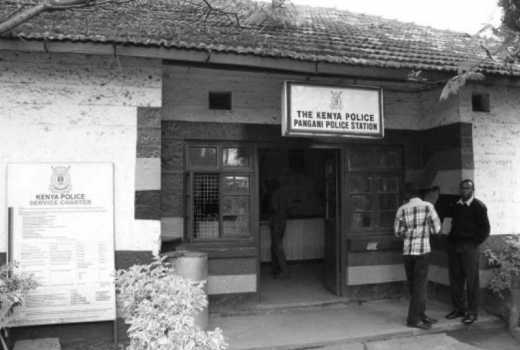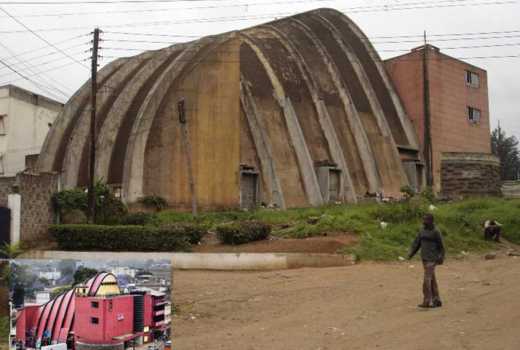
The Pangani area of Nairobi is nestled between Mathare's Mlango Kubwa, Ngara and Eastleigh estates on the northeast part of the city.
Landmarks in Pangani include its shopping centre and India-influenced architecture, the now defunct Liberty Cinema which screened Bollywood films starring screen idol Amitabh Bhachchan, and AA Mithaiwalla, one of Nairobi's oldest restaurants.
It was opened by Abdulahi Alibhai Mithaiwalla, a Bohra Muslim from Gujarati who began selling Indian sweets and confectioneries from a rickshaw in 1930s Pangani. His family opened the present restaurant, famous for its paya goat hoof soup, in the 1970s.
Another famous landmark of Pangani is the Radiant Health Clinic founded at a friend's house by Dr Abdul Haq Sahib in 1947. As clients grew, Dr Sahib contracted renowned builder Ibrahim Chaudry, who erected its present building along Juja Road.
Did you know that Pangani was founded by women from Kiambu who were escaping domestic abuse towards the rear ankles of the 19th century?
Ostracised by society at the time, these victims of domestic abuse were later joined by widows in what slowly became one of the oldest African settlements in Nairobi.

Indeed, at the time in 1899, Pangani was a trading camp as Arab traders used it as a route for transporting ivory from Ukambani to the coast, as David Anderson notes in his 2005 book, Histories of the Hanged.
These Kikuyu women, being jobless, turned to serious prostitution servicing randy traders, bar-tending by day and turning their mud wattle huts into lodgings at night. By the 1920s, Pangani, the choice area for the most urbanised Africans, had the largest concentration of venereal diseases like kaswende and kisonono, writes Anderson.
The British colonialists took interest when the African population in Nairobi swelled to 12,000, with Pangani carrying the bulk of it. Nationalists like Harry Thuku began using this number to inject political consciousness, leading to his arrest and detention at the Central Police Station in 1922.
The whoring women of Pangani, led by Mary Muthoni Nyanjiru, trooped there, agitating for his release along Queensway Road (now Harry Thuku Road). It was Kenya's first political street demo in which 21 people were killed, including ring leader Nyanjiru.
That colonialists feared that Pangani would morph into nothing but a "haven for crime, vagrancy and African mischief," notes Anderson. That was becoming a reality by 1931, when three quarters of the 312 houses there had been turned into lodgings, a majority owned by the women from Kiambu.
Pangani was thus Nairobi's largest lodging quarters, and having had enough, the colonial government compensated home owners and "Pangani was finally demolished in 1938, and the bulk of its remaining residents forcibly relocated to a new estate, Shauri Moyo," writes Anderson, adding that, “There was little to take pride in here. Those who moved in from Pangani hated it, and many soon left.”
The evicted Africans from Pangani were replaced by Asians, most of them railway contractors, reinforcing the racial residential housing code at the time. The Old Race Course estate, Eastleigh, Ngara, Park Road, Parklands, Highridge and Pangani became Uhindi areas and the Pangani Mosque and the Sikh Temple are remnants of that era. Mzungus enjoyed creature comforts in low-density, high-ground areas of Muthaiga, Westlands, Upper Hill and Karen. Africans were condemned to Eastlands in the then emerging estates of Jericho, Makongeni, Bahati, Kaloleni, Mbotela, Maringo and Shauri Moyo.
Pangani, which Nairobians call ‘Pango’, was for years where miros from surrounding estates trooped to buy roti, tandoori and other Indian delicacies. It still retains its old charm, despite its parkings being turned into miraa-chewing slots.
 The Standard Group Plc is a multi-media organization with investments in media
platforms spanning newspaper print
operations, television, radio broadcasting, digital and online services. The
Standard Group is recognized as a
leading multi-media house in Kenya with a key influence in matters of national and
international interest.
The Standard Group Plc is a multi-media organization with investments in media
platforms spanning newspaper print
operations, television, radio broadcasting, digital and online services. The
Standard Group is recognized as a
leading multi-media house in Kenya with a key influence in matters of national and
international interest.
